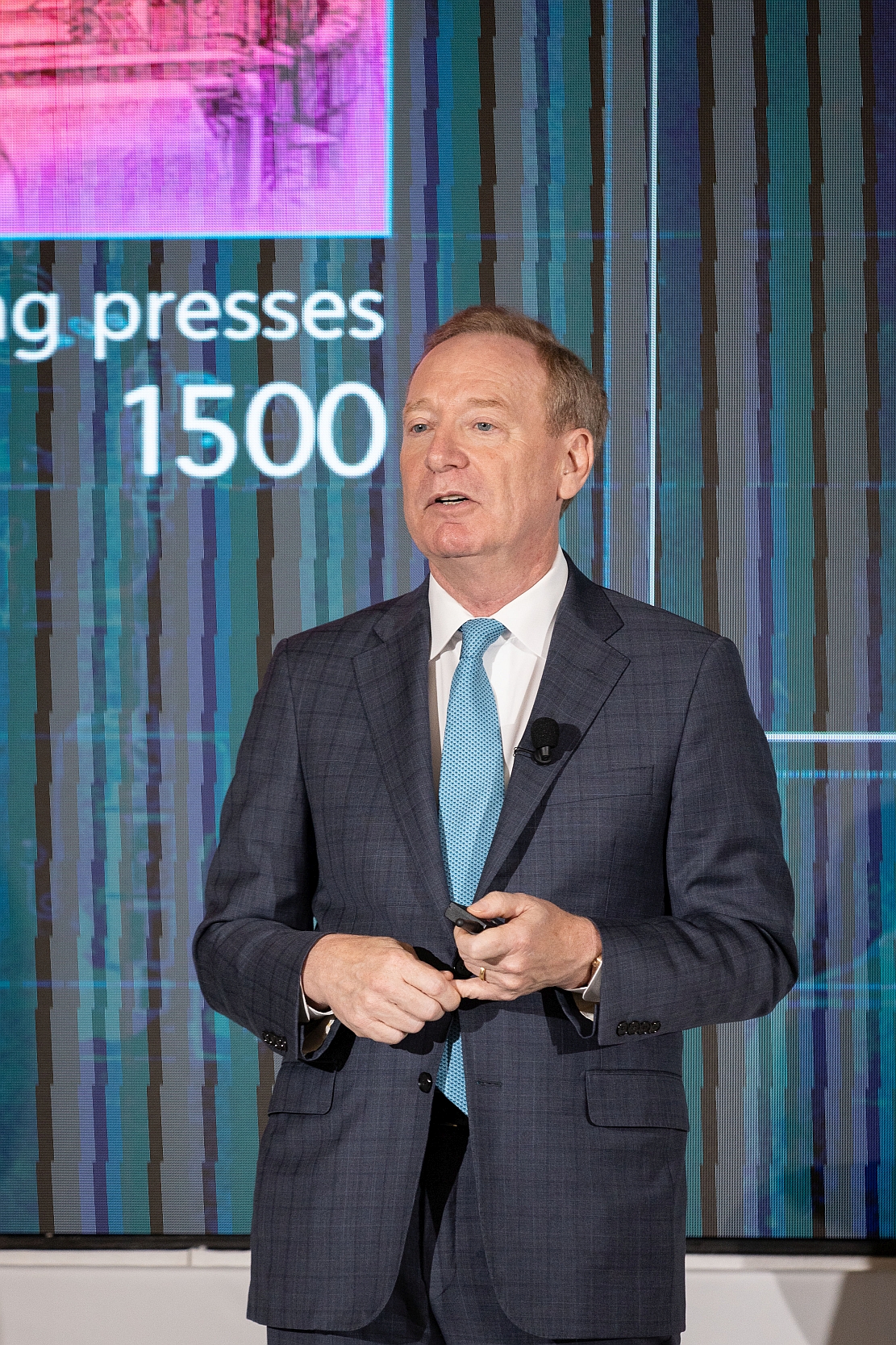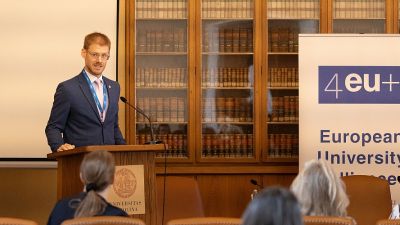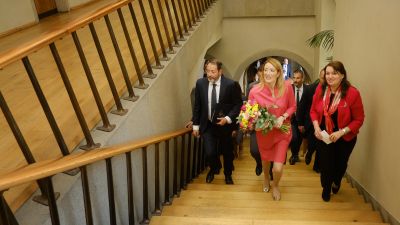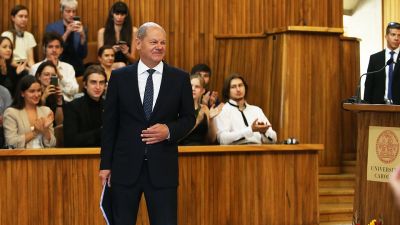Charles University’s Hall of Patriots was a compelling site for an important conference organised by Microsoft on Thursday, featuring the company’s Vice-Chair and President Brad Smith. The head gave a keynote presentation called Sustaining Trust in the New AI Economy, outlining the challenges as well as potential risks ahead. That was followed by what was labelled a ‘fireside chat’ with European Commission VP Věra Jourová and Microsoft’s General Manager for Central and Eastern Europe, Michelle Simmons.
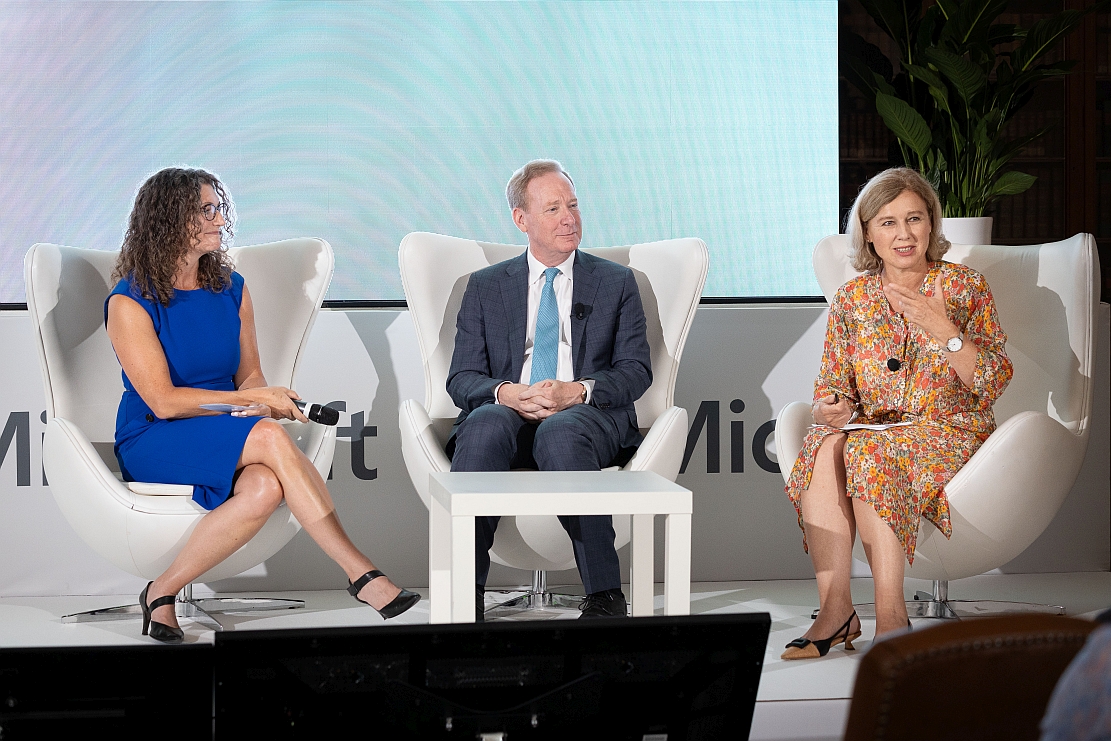
From left: Microsoft's Michelle Simmons, Vice-Chair and President Brad Smith, and EC Vice-President Věra Jourová.
The keynote presentation and discussion that followed were engaging both as part history lesson of transformational technology (signposting the invention of the printing press in the 15th century, and electrification in the late 19th) and a look to the future, namely the development of more and more consequential AI in the 21st.
Microsoft’s Smith stressed right off the bat it was an absolute privilege to deliver his talk at a university founded all the way back in 1348 and spoke about the contribution the Czechs had made to Europe and the world, segueing into praise for the EC’s Věra Jourová, the Vice President for Values and Transparency (who is broadly seen as having been greatly influential in promoting democracy, the rule of law, the oversight of developments in digitalisation, as well as combating disinformation). Smith spoke about general purpose technology or inventions (which transformed society fundamentally such as the Gutenberg press, from which new jobs and industries eventually sprang over decades and centuries), saying – in his view – that a century from now, humankind would see “AI as one of the biggest and broadest and most impactful general purpose technologies ever invented,” adding that “that was saying a lot”.
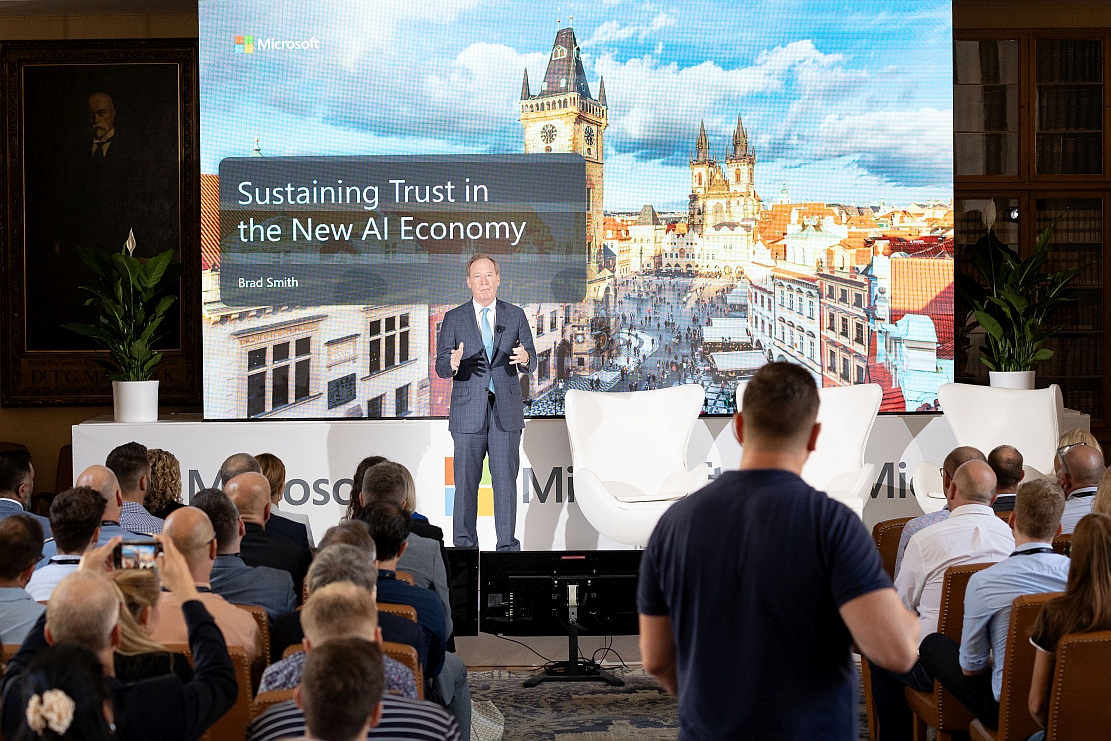
Brad Smith delivering an engaging presentation on the future of AI at Charles University on 29 August 2024.
Given how packed the Hall of Patriots was on Thursday, the message was not lost on attendees, whether they were insiders or industry-watchers, researchers or teachers, journalists or early-adopters. To this end, Charles University signed a cooperation agreement with Microsoft several years ago to position itself better in the changing world, with an emphasis on education, safety, and cybersecurity. Vice-Chair Smith made clear that Microsoft took each aspect of AI development seriously while focusing on education and developing skills (skilling) to make sure the technology could be used effectively and that the workforce and students would be ready to adapt and ready to excel in the changing labour market.
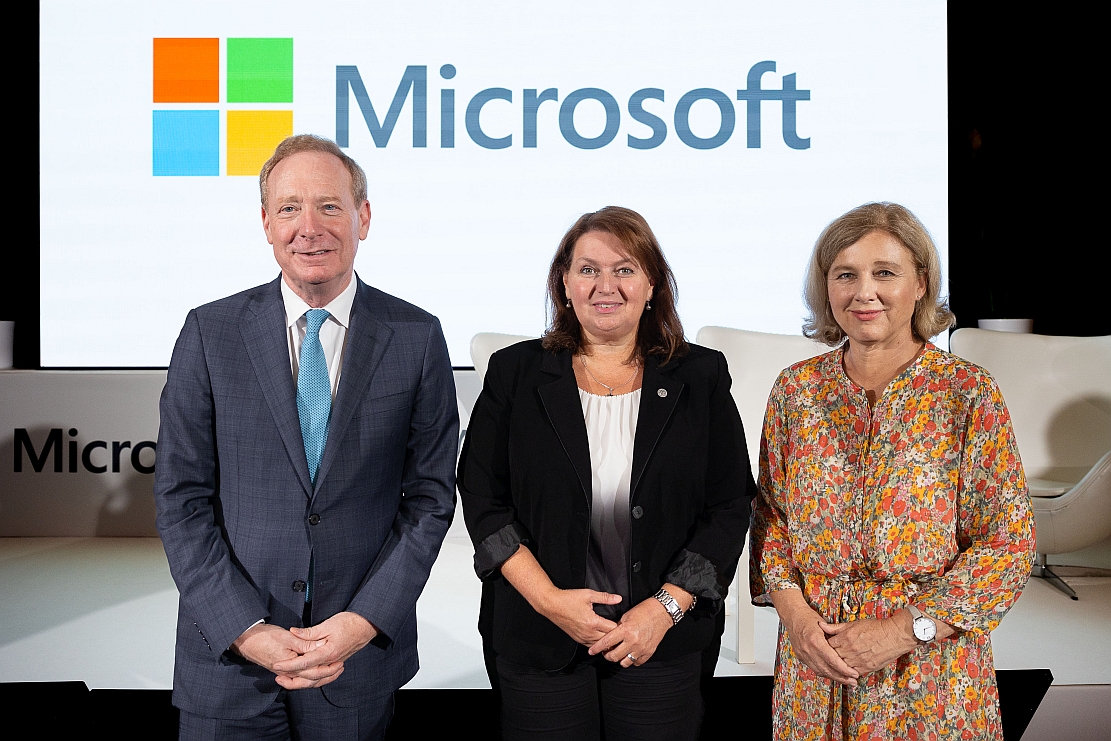
Brad Smith next to Charles University Rector Milena Králíčková and EC Vice-President Věra Jourová.
The Vice-Chair spelled out Microsoft’s aims in detail:
“When we say it is our mission to empower every person in every organisation on the planet to achieve more, something we adopted a decade ago, we are seeing it in bold relief, with a clear opportunity to actually use technology which we can bring to people around the world. It informs not just what we are trying to do in terms of start-ups as we are building a platform and infrastructure… it also informs what we need to do: not just investing, as we are, but sustaining trust in every country to ensure the technology is accessible, that it is run fairly and that it is built and managed to really address the needs of every country, of every community. That is why we adopted access principles.”
Trust is a key part of any debate when it comes to emergent technology and is one that continues to dog AI for good reason. A good deal of the focus from the vice-chair of Microsoft turned to outstanding issues such as manipulation, disinformation, deep-fakes and other tools pursued and abused by malicious actors - facilitated by AI.
Smith noted that 2024 is an important election year globally, not just in the United States but over a slew of countries, and the dangers of AI being weaponised are increasingly obvious. The pandemic proved beyond a doubt how easy it can be to distort issues, manipulate reactions and hamstring effective responses, and that was just the tip of the proverbial iceberg. To counter risks of all kinds, Smith emphasised that new partnerships were needed and that a focus on law and smart regulation were required. To provide a buffer against threats to elections, for example, by unscrupulous actors and to counter cyberattacks which are expert and continuous, something both Smith and the EC’s Jourová could, and did, speak at length about. Disinformation and cyberattacks from certain state actors: mentioned were Iran, China, North Korea, and Russia.
Smith also emphasised that both innovation and regulation and safeguards were needed, with a firm commitment to sustainability. Reducing carbon emissions and finding alternative resources as AI itself consumes great amounts of energy.
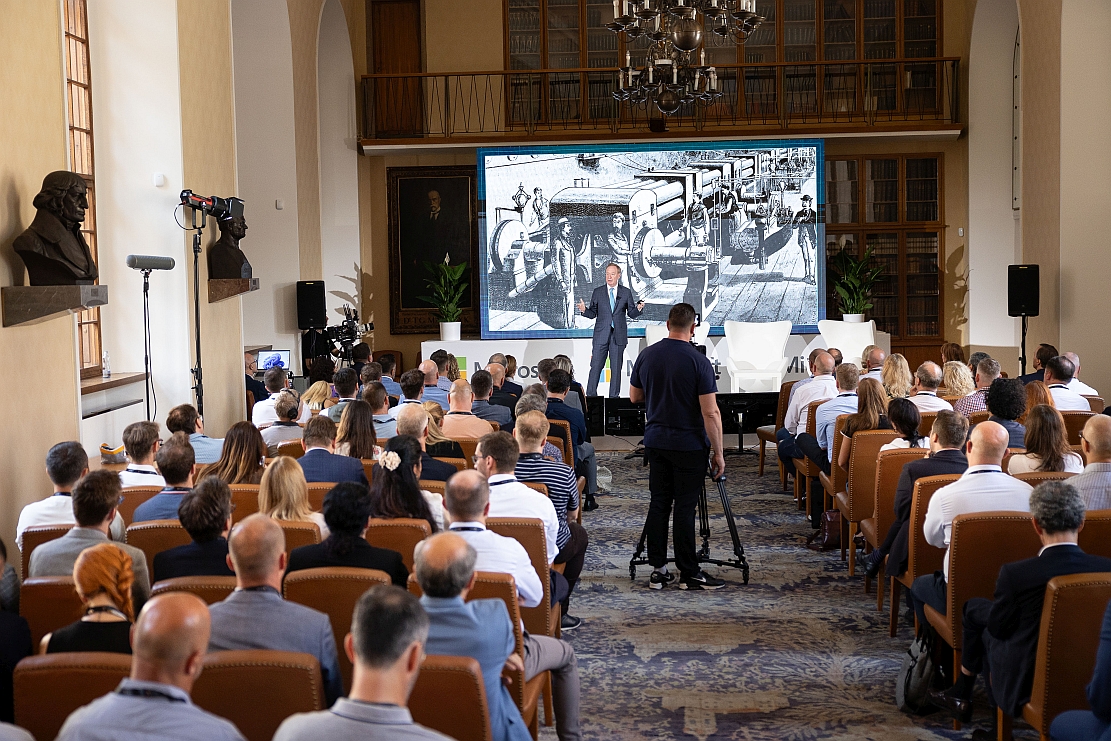
Smith talks about another great milestone: harnessing the power of electricity in New York back in 1882.
Not all in the tech industry are on board with regulation but the Microsoft Vice-Chair emphasised it was needed just as in any other facet of modern industry. He gave two examples: food and aviation. One can look to safety and regulatory frameworks in the airline industry for inspiration. The regulation of food in the US? Likewise. You can buy "all kinds of different kinds of milk, from skimmed to soya, at the store", he said, "and they all have one thing in common: they are all safe."
Finding a common ground and common responsibility within a reasonable and effective regulatory framework could be the way forward and a cause for optimism, something that was further discussed in the ‘fireside chat’ portion of the programme, while at the same time acknowledging enormous and unresolved difficulties that remain which make it hard to always plot a positive course. Two wars, growing political divisions across Europe and other parts of the world, polarisation, discord. The role of higher education in such a context is as relevant as ever, as is a renewed focus on developing and using AI (curbing AI?) primarily as a force for good and not for causing disruption and sowing chaos.


